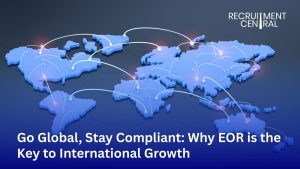The concept of Developing a Strong Employer Value Proposition (EVP) – a strategic tool that goes beyond compensation and benefits to showcase what sets an organization apart. By exploring the components, benefits, and strategies of EVP creation, this article provides insights into how organizations can effectively position themselves as employers of choice.
Understanding Employer Value Proposition (EVP): An Overview
Defining EVP
An EVP encompasses the unique set of offerings and benefits that an organization provides to its employees in exchange for their skills and contributions.
Importance of a Compelling EVP
- Attracting Talent: A strong EVP attracts top talent by highlighting the organization’s culture, opportunities for growth, and work environment.
- Employee Retention: An effective EVP fosters a sense of belonging, leading to higher employee satisfaction and retention.
- Competitive Edge: A well-defined EVP differentiates the organization in a competitive job market.
Crafting a Compelling EVP: Key Components
Company Culture
EVP should reflect the organization’s values, mission, and the overall workplace culture.
Growth and Development Opportunities
Highlight the potential for career growth, skill enhancement, and professional development.
Compensation and Benefits
Clearly outline the competitive compensation packages, healthcare, and other perks offered.
Building Your EVP: Strategies for Success
Research and Insights
Gather feedback from current employees to understand what they value most in their workplace.
Align with Branding
Ensure that the EVP aligns with the organization’s brand image and messaging.
Communication is Key
Effectively communicate the EVP through various channels, including job postings, career websites, and social media.
The Impact of a Strong EVP on Employee Engagement
Higher Job Satisfaction
A compelling EVP leads to higher job satisfaction, as employees find their roles meaningful and rewarding.
Enhanced Recruitment Efforts
A well-defined EVP makes it easier to attract candidates who resonate with the organization’s values.
Increased Employee Loyalty
Employees who connect with the EVP are more likely to stay committed to the organization.
Expert Insights
“A well-crafted EVP is the foundation of a thriving workplace culture and a competitive advantage in attracting and retaining top talent.” – Emily Roberts, HR Strategist.
Developing a Strong Employer Value Proposition (EVP): A Step Toward Success
- Attracting Top Talent: An EVP positions the organization as an attractive workplace, drawing in high-quality candidates.
- Retention and Engagement: A compelling EVP fosters employee loyalty and engagement, reducing turnover rates.
- Building Brand Reputation: A well-defined EVP contributes to a positive employer brand, attracting talent even when not actively hiring.
Recruitment Central’s Talent Acquisition Platform: Navigating EVP Development with Expertise
With over two decades of experience, our platform guides organizations in creating robust EVPs that resonate with candidates and enhance workforce engagement.
Conclusion
Developing a strong Employer Value Proposition (EVP) is a strategic endeavor that can have a profound impact on an organization’s ability to attract, engage, and retain top talent. By focusing on key components, aligning with branding, and effectively communicating the EVP, organizations can create a compelling narrative that resonates with candidates and sets the stage for a thriving workplace culture.
Frequently Asked Questions
Ques 1. What role does company culture play in the development of an EVP? Company culture is a crucial component of an EVP, as it showcases the organization’s values and work environment.
Ques 2. Can a well-defined EVP contribute to employee motivation? Yes, a compelling EVP can motivate employees by offering growth opportunities, meaningful work, and a positive work environment.
Ques 3. How can organizations measure the effectiveness of their EVP? Employee surveys, retention rates, and candidate feedback are some ways to gauge the impact of the EVP.
Ques 4. Is a strong EVP equally important for small and large organizations? Yes, a strong EVP is important for organizations of all sizes, as it helps attract the right talent and foster a positive workplace culture.
Ques 5. Can an EVP help organizations stand out in a competitive job market? Absolutely, a well-crafted EVP differentiates an organization by highlighting its unique offerings and values.
Ques 6. How often should organizations update their EVP? Organizations should regularly review and update their EVP to reflect changing employee expectations and market trends.







